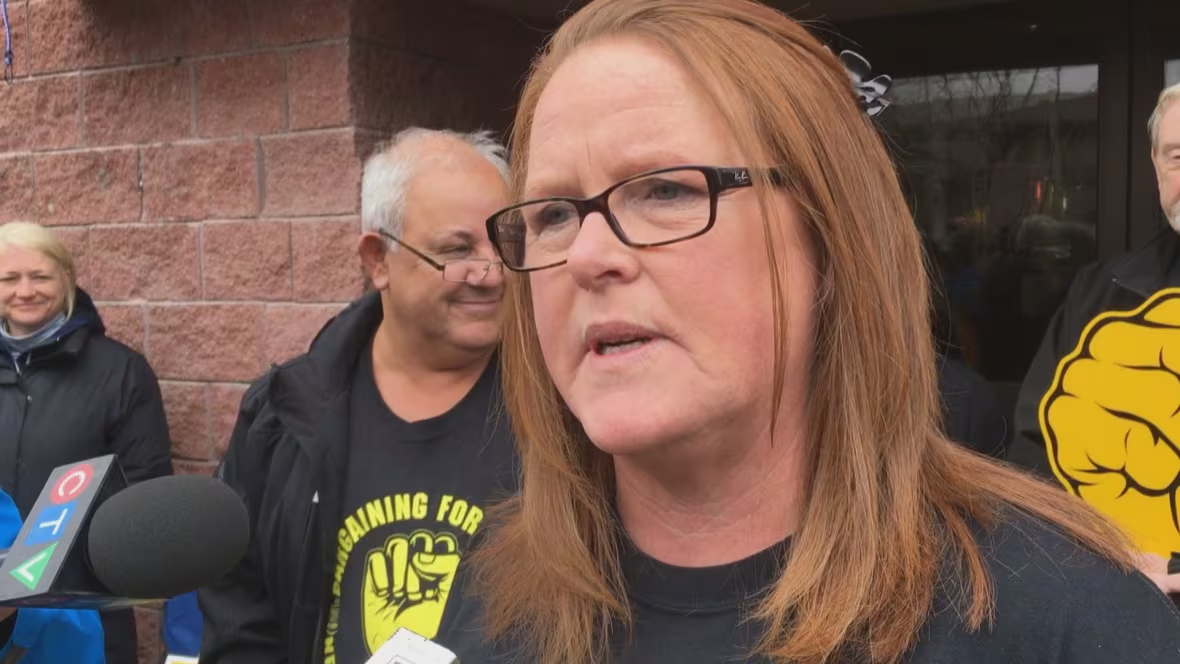Judge made reversible error of law by removing strike stay, appeal panel says
Justice Paulette Garnett erred in focusing on harm to CUPE as opposed to harm to public interest
New Brunswick's Court of Appeal judges released their reasons for reversing a decision that would have allowed 4,000 nursing home workers to go on strike.
Last month, New Brunswick's Court of Appeal stayed a labour board ruling until a judicial review is done, or until further orders from the Court of Queen's Bench.
In a written decision, the three judges said that by rejecting a stay, Justice Paulette Garnett committed a "reversible error of law." She erred in focusing on the harm a stay would cause CUPE members instead of the harm a strike would cause the public.
They also said CUPE must pay costs of $1,000 to the province and $500 to the New Brunswick Association of Nursing Homes.

The three judges who heard the appeal were Justice Kathleen Quigg, Justice Raymond French and Justice Charles LeBlond.
The panel delivered the unanimous decision last month, preventing licensed practical nurses, resident attendants and support service workers from walking off the job in the foreseeable future. The written reasons were released Thursday.
Garnett's 'error'
On March 18, Justice Paulette Garnett refused to extend a stay on the labour board decision because she said prolonged bargaining and contract talks, dating back to 2011, have caused "irreparable harm" to unionized nursing home workers.
"It is accepted that residents of nursing homes are vulnerable," she said in court that day. "But they, too, have an interest in prompt and satisfactory solution to labour disputes."
The appeal judges said that when making her decision, Garnett should have only considered harm to the applicant, the province's attorney general, who represents "the public interest."
The document also says Garnett "misdirected herself" when making her decision based on how long CUPE has been negotiating with the province.
"The ongoing collective bargaining dispute between CUPE, the Association and the Province is not an issue before the court."
Ninety per cent of CUPE members voted to strike in early March after the New Brunswick Association of Nursing Homes failed meet their wage proposals. They were stopped from striking by back-to-back court orders.
Harm to the public
Justin Wies, the lawyer for the nursing homes, previously told the court that CUPE workers take care of vulnerable elderly people who depend on them for basic needs such as being fed and kept clean.
A stay was not harmful enough to the public interest to warrant removing it, according to the three judges.
"There is no evidence that the harm the constituent members of CUPE might face while the stay is in place will exceed the harm which could occur to the public interest, presumed or otherwise, should the stay currently in effect not be extended."
Judges also said a stay would not make much of an impact on collective bargaining, considering an upcoming judicial review of a labour board ruling involving nursing home workers.
"The extension of the stay does not, in any way, affect the collective bargaining positions of the parties pending the imminent judicial review."
Back to talks
A labour board decision made by Robert Breen said provincial legislation deeming nursing home work an essential service is unconstitutional because it doesn't allow workers to fully strike.
The province is challenging that decision, and a judicial review is set to begin on May 24 in Moncton.
Minister of Social Development Dorothy Shephard previously said the province brought an "enhanced" offer to the table. The original offer was a one per cent wage increase every year for four years, which is what it offered other sectors.
The "enhanced" offer includes a commitment to match wage increases to inflation for two years after October 2020, "provided certain performance improvements" are achieved, she said.
Sharon Teare, president of the New Brunswick Council of Nursing Homes Unions, said the union met with Premier Blaine Higgs and Shephard on Wednesday and had a "respectful" exchange.
The province, the association and the union returned to negotiations Thursday and Friday.
